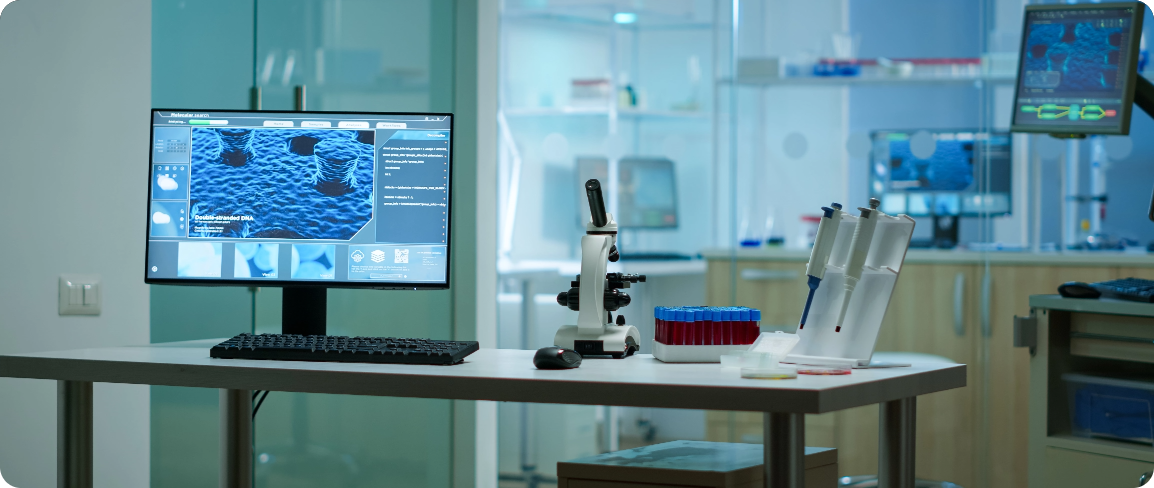
The Computer Science & Engineering (CSE) department includes ten computer laboratories, each designed to accommodate between 24 and 30 students, with a combined total of 264 systems. These labs are equipped with both hardware and licensed software, featuring Microsoft products, RDBMS through the Oracle Academic Initiative, and development tools such as MS Visual Studio, Python, PHP, Java, Packet tracer, Ubuntu and C/C++ compilers. The department also encourages the use of open-source software. Each laboratory holds two sessions per week, overseen by a faculty member and a lab instructor. There is one computer available for each student. A stock register is maintained to track equipment history, ensuring efficient management.

Data Structure and Algorithm Lab
The Data Structure Lab provides hands-on experience in implementing and analyzing data structures using Code::Blocks and Visual Studio Code (VSC). These IDEs offer user-friendly interfaces and debugging tools for efficient coding in C and C++. Equipped with high-performance computers, the lab enables both individual and group work. Students explore core concepts like arrays, linked lists, stacks, and queues to enhance their understanding of memory management and resource optimization.

Object-Oriented Programming (OOP) Lab
In the Object-Oriented Programming (OOP) Lab, Visual Studio Code (VS Code) is used to simplify and enhance the programming experience for students. Its customizable interface allows projects to be navigated easily. The built-in debugger is utilized to identify and fix errors by pausing execution and checking variables.

DBMS Lab
The DBMS Lab provides hands-on experience in database design and management using MySQL and Oracle. Students explore key topics such as data modelling, SQL, normalization, and transaction management. With access to advanced systems, they work on real-world projects, developing practical skills in database manipulation and concurrency control, thus preparing for careers in database administration, data analytics, and software development.

EIT Lab.
The EIT Lab provides students with hands-on experience in various fields of information technology, using Visual Studio Code (VS Code) as the primary development tool. The lab focuses on real-world projects, encouraging innovation and problem-solving. Through practical exercises, students gain proficiency in software development, debugging, and version control, preparing them for careers in IT and software engineering.

Computer Network Lab
The Computer Network Lab uses Packet Tracer, a cross-platform visual simulation tool by Cisco Systems, to create and simulate network topologies. This software enables the configuration of Cisco routers and switches through a simulated command line interface and offers an interactive drag-and-drop environment. Packet Tracer helps in understanding networking concepts, troubleshooting issues, and safely experimenting with configurations, allowing students to gain practical skills essential for careers in networking.

SVVT / Software Engineering Lab
The SVVT / Software Engineering Lab provide students with practical experience in software development, encompassing all phases from requirements analysis to testing. Students learn to design and visualize systems while studying concepts such as Data Flow Diagrams (DFD) and UML diagrams. The lab focuses on understanding software architecture and the entire development process, ensuring a thorough learning experience.

Neural Network and Deep Learning Lab
The Neural Network and Deep Learning Lab explore advanced artificial intelligence concepts using MATLAB and Python. Students design and analyze various neural network architectures, from simple feed forward to complex convolution and recurrent networks. Through hands-on projects, they apply deep learning techniques in image recognition and natural language processing, equipping themselves with the skills needed for careers in machine learning and data-driven technologies.

Cloud Computing Lab
The Cloud Computing Lab uses Ubuntu to teach students about cloud technologies and services. It covers fundamental principles like deployment and service models, along with hands-on experience in creating virtual machines, configuring networks, and deploying applications. Key topics such as scalability, security, and resource management prepare students to implement real-world cloud solutions and pursue careers in cloud technology and IT infrastructure management.

Project Labs
Project Labs are dedicated spaces for developing and implementing software and research projects. Equipped with tools like MATLAB, Python, PHP, and MySQL Server, these labs provide a collaborative environment for solving complex problems and creating innovative solutions in web development and artificial intelligence. They foster practical learning, enabling students to apply theoretical knowledge while gaining experience in project management and teamwork.